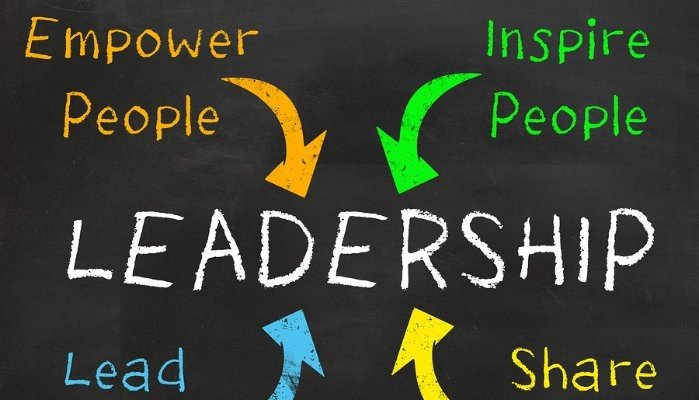How to become a better leader!
How to become a better leader!
What do I need to know about being a good leader?
The new generation of leaders are raised on rapid change, technology and the expectation of a team-based, collaborative environment and the manager / employee relationship has become more of a partnership, rather than a boss and subordinate. This new model ranges from providing input to and the execution of strategy, new ideas, business planning, completing day-to-day work and where and how that work is done.
In the last 12 months or so, we’ve seen employees in both in leadership roles and non-leadership roles leaving their jobs and businesses that they’ve worked with for years, looking for better working arrangements, workplace culture, and where they get to have more input into their work life.
The old model of turning up to work and leaving your problems and personality at the door are gone as is the style of leadership where the only the boss makes decisions and directs all the work is also gone and it's critical that all managers and leaders move to a people-centred or heart-based leadership approach. This will help you achieve a better execution of your strategy, create a robust platform for innovation, gain a deeper understanding of your customers and help you attract and retain the best and brightest people, through an inspiring, challenging and fun work environment.
What is a heart-based leader?
Heart-based leaders have a focus on continuous learning, being curious and caring about people, rather than being directive and all knowing. They put people first and are holistic in their approach around getting to know and supporting the whole person (personally, professionally, emotionally, and spiritually). They look for win-win solutions for individuals and the business, not win at all costs. They are courageous, and are driven by integrity, being authentic and genuinely connecting with people.
Heart-based leaders are emotionally intelligent and focus on outcomes, encourage good decision making, strategic thinking and getting things done. Their goal is to truly inspire and empower people.
What does the 'heart' mean in this style of leadership?
The ‘heart’ represents emotions. This is where a heart-based leader can genuinely connect with people. Having a good read on your their own and others’ emotions can help then inspire, motivate, and proactively support their team which in turn increases productivity, efficiency, and employee happiness.
The 'heart' also means love. Yes, I said love... Hand in hand with the heart comes love, which means demonstrating love in leadership by genuinely caring about your people and equipping them with the tools to succeed' as well as practicing tough love when you need to. Set clear expectations for behaviours and performance and stand by them.
The ‘heart’ is the key ingredient in high performing teams as it’s more than just about the skills to do a job or meet a goal, its about everyone in the team genuinely wanting to achieve results for themselves, each other, and the business.
Why is heart-based leadership important?
Leaders who can engage capabilities (the doing) and the knowledge (the knowing) sometimes fail to engage their minds and emotions of their team, so they are constantly falling short of having a well rounded and high performing team.
We all know a leader that is ‘good on paper’, but who shows poor emotional leadership. Often their focus is more on the tasks than on the people and they can appear to be less compassionate and lack empathy towards others. They may also be directive and make others feel fearful to speak up or think outside the box. Their team often is disgruntled as they are not feeling cared about, supported or trusted and this generally raises cultural, behavioural, and motivational issues within the team. Interestingly, the whole organisation also seems to know who these leaders are. Sometimes they are even explained away as ‘Oh that’s just Brian, he’s always like that’ and despite some task driven successes, people around them are disengaged, unmotivated and are left wondering why HR or someone in leadership doesn't do something about them. In a nutshell, these are the leaders that people don’t want to work with and who people avoid contact with where they can.
Emotional Intelligence - can I get it if I don't already have it?
Yes! Heart-based leadership doesn’t always come naturally but the good news is, it can be learned, and you can improve your emotional intelligence.
What can I do to become a better leader?
- Acknowledge the F Word - Feelings – Put yourself in someone else’s shoes and try to understand how a decision, project or task may impact them. Validate their concerns and work with them to find a solution.
- Improve Communication – two-way feedback, both one on one, and in a team setting is critical. The aim of a heart-based leader is to inspire action, and you can only do this if you are communicating effectively.
- Build relationships – find out who your people are and what they do at a deeper level – family, interests, hobby’s, passions.
- Find Balance - Aim to find a balance between the needs of the task and the needs of the people.
- Encourage creativity and knowledge building – ask your team to solve the problem. Empower people to take ownership and try new things, even if they don’t always work. Get someone in the team to share their knowledge with others.
- Be Positive – Positive leadership can improve people’s productivity, job satisfaction and happiness at work. It also helps build trust, and your people will be more open to share concerns and adapt to change.
- Model behaviours - do as you say you will and role model good behaviours.
Want to level up your leadership skills?
Contact us NOW for more information about our individual or group coaching programs!








READY TO GET THINGS DONE?
Revolution Consulting Group is your Dedicated HR Partner




